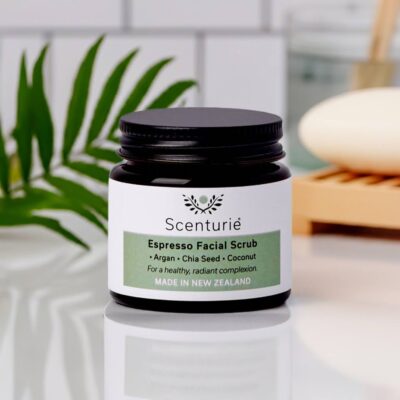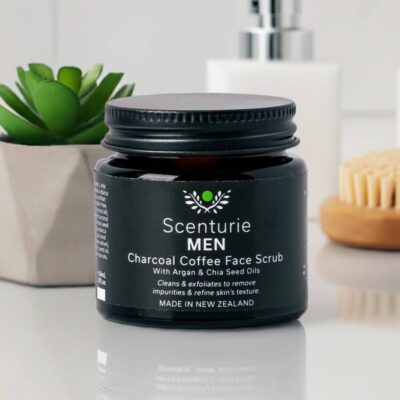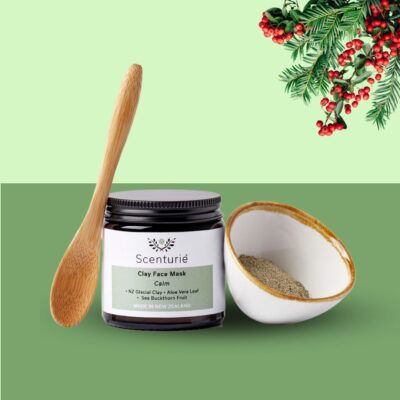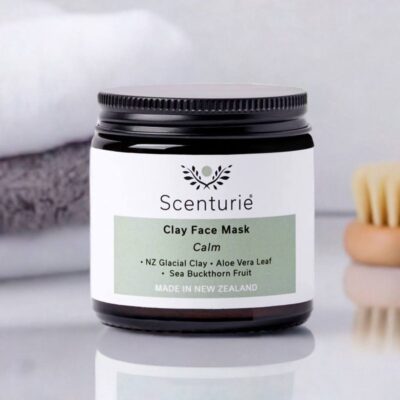Exfoliation: The Key to Achieving Smooth, Radiant Skin
Our skin is a remarkable organ, often taken for granted despite its incredible capabilities. From protecting us against external threats to serving as a canvas for our expressions, our skin stands as a steadfast companion, accompanying us through every triumph and tribulation.
A natural marvel of our skin is that every 28 days the skin’s natural renewal process occurs bringing forth fresh, healthy, glowing skin cells. However, as we age, this process slows down, resulting in a buildup of dead skin cells that can make the skin appear dull, rough, and dry.
We can assist our skin in removing the build-up of dead skin cells with regular exfoliation. Exfoliation is the process of removing dead skin cells from the surface of the skin, typically through the use of a scrub or chemical exfoliant. Exfoliating is an important part of a good skincare routine, and it offers a wide range of benefits for the skin. By removing dead skin cells, unclogging pores, and promoting cell regeneration, exfoliation helps to reveal smoother, brighter, and healthier-looking skin.
The Benefits of Exfoliating Your Skin
1. Exfoliation removes dead skin cells
The outer layer of our skin is composed of dead skin cells that have accumulated over time. These cells can make our skin look dull, dry, and flaky. Exfoliating helps to remove these dead skin cells, leaving our skin looking smooth, soft, and refreshed. By getting rid of the dead cells, you can also help other skincare products penetrate better, giving you better results from your skincare routine.
2. Exfoliating unclogs pores
Our pores can become clogged with oil, dirt, and dead skin cells, leading to acne, blackheads, and other skin issues. Exfoliating can help to unclog pores, allowing the skin to breathe and preventing the formation of blemishes. Regular exfoliation can also help to reduce the appearance of pores, making your skin look smoother and more even.
3. Exfoliation promotes cell regeneration
Exfoliating stimulates cell regeneration, helping to promote the growth of new, healthy skin cells. This can help to reduce the appearance of fine lines, wrinkles, and other signs of aging, as well as improving the texture and tone of your skin. By promoting cell turnover, exfoliation can also help to improve the appearance of scars and sun damage, giving your skin a more youthful and radiant glow.
4. Exfoliators improve skin texture, tone, and radiance
By removing dead skin cells and promoting cell regeneration, exfoliation can help to reduce the appearance of rough, dry, or uneven skin. This can be especially beneficial for people with dry or mature skin, as it can help to improve the skin’s ability to retain moisture and prevent the signs of aging.
5. Exfoliating enhances product absorption
Exfoliating can help to enhance the absorption of other skincare products, such as serums, moisturisers, and masks. By removing the dead skin cells that can block the pores, exfoliation can help to improve the penetration of active ingredients, allowing them to work more effectively. This can help you get better results from your skincare routine, and make your skin look healthier and more radiant.
6. Exfoliating boosts circulation
Exfoliating can help to boost circulation, which can improve the overall health and appearance of your skin. By increasing blood flow to the skin, exfoliation can help to deliver vital nutrients and oxygen to the cells, helping them to function better and stay healthy. This can help to reduce the appearance of dark circles, puffiness, and other signs of fatigue, giving your skin a brighter, more refreshed look.
7. Exfoliating improves makeup application
Exfoliating removes flaky patches, resulting in smoother skin that enhances the application of makeup. This helps prevent foundation from appearing splotchy, cakey, or settling into fine lines, leading to a more flawless makeup finish.
How Often Should I Exfoliate?
The frequency of exfoliation really depends on your skin type and the type of exfoliant you’re using. For most people, it’s recommended to exfoliate once or twice a week, but those with sensitive skin should stick to once a week or even less frequently. If you’re using a physical exfoliant, such as a scrub or brush, be gentle and avoid over-exfoliating, as this can damage the skin. If you’re using a chemical exfoliant, such as an acid or enzyme, follow the instructions and start with a lower concentration, gradually increasing as your skin becomes accustomed to it. It’s also important to listen to your skin and adjust your exfoliation frequency as needed.
It’s also important to note that exfoliating can be drying to the skin so always follow with a moisturiser immediately afterwards to keep your skin healthy and hydrated. Also, never exfoliate if you have open cuts or wounds, or if your skin is sunburned.
In conclusion, exfoliating is an important part of any skincare routine offering a wide range of benefits for the skin. By removing dead skin cells, unclogging pores, promoting cell regeneration, improving skin texture and tone, enhancing product absorption, and boosting circulation, exfoliation can help you achieve your skincare goals and make your skin look healthier, more radiant, and more youthful. Whether you prefer physical exfoliants, such as scrubs and clay masks, or chemical exfoliants, such as acids and enzymes, incorporating exfoliation into your skincare routine can help you achieve your best skin ever.
Scenturie Natural Skincare Exfoliating Solutions
Our Scenturie Natural Skincare range offers a natural solution for gentle, effective exfoliation. Select from our award-winning Expresso Facial Scrub, Men’s Charcoal Coffee Scrub, or Clay Face Mask, and enjoy smoother, healthier, and more radiant healthy skin today.
Exfoliation: The Key to Achieving Smooth, Radiant Skin Read More »








